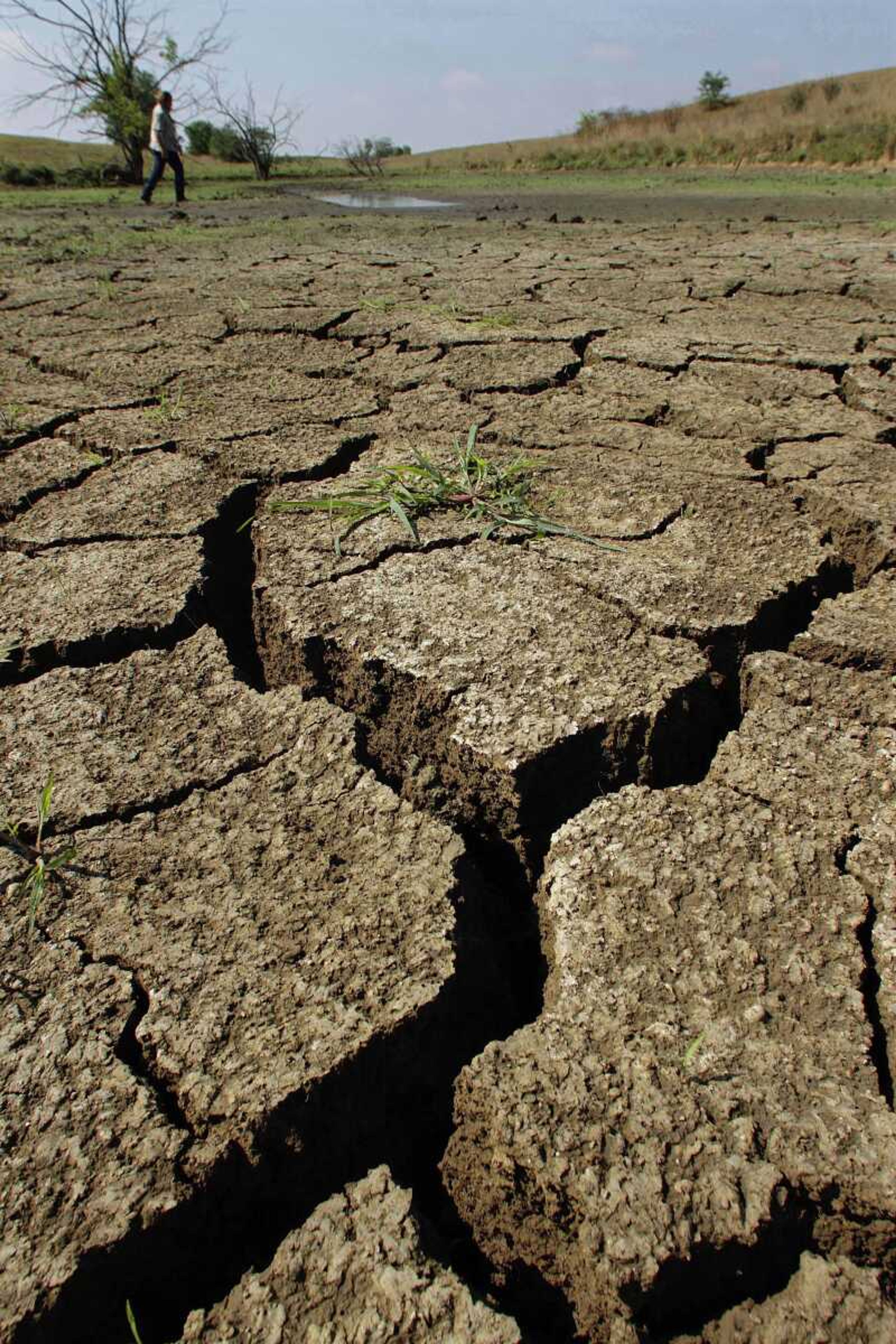Drought among drains on Midwest economy
OMAHA, Neb. (AP) -- An August survey suggests that the continuing drought and lessening export demand for U.S. products are among the drains on the economy in nine Midwest and Plains states, according to a report released Tuesday. The Mid-America Business Conditions Index remained below growth neutral for a second month in a row, the first time that's happened since July 2009, organizers said. The overall index rose to 49.7 in August from 48.7 in July. June's figure was 57.2...
OMAHA, Neb. (AP) -- An August survey suggests that the continuing drought and lessening export demand for U.S. products are among the drains on the economy in nine Midwest and Plains states, according to a report released Tuesday.
The Mid-America Business Conditions Index remained below growth neutral for a second month in a row, the first time that's happened since July 2009, organizers said. The overall index rose to 49.7 in August from 48.7 in July. June's figure was 57.2.
"Supply managers report that drought conditions, U.S. economic uncertainty and slowing global demand are restraining growth," said Creighton University economist Ernie Goss, who oversees the survey. "However, the index would have to drop into the low 40s before I would anticipate a return to recessionary economic conditions."
The survey of business leaders and supply managers uses a collection of indexes ranging from zero to 100. Any score above 50 suggests growth while a score below 50 suggests decline for that factor. The survey covers Arkansas, Iowa, Kansas, Minnesota, Missouri, Nebraska, North Dakota, Oklahoma and South Dakota.
Economic optimism, as indicated by the August business confidence index, rose slightly to a weak 44.3 from July's 38.0.
"Supply managers, much like the entire business sector, remain very pessimistic regarding future economic conditions," Goss said. "The drought, the fiscal cliff, the elections, and European economic turmoil are all weighing on economic confidence," he said.
The index for new export orders remains below growth neutral at 48.3 in August, compared with 45.2 in July.
"Weaker global growth and the rising value of the dollar making U.S. goods less competitive abroad pushed the export reading lower," Goss said.
Signs of inflation surfaced unexpectedly in last month's survey, he said. The prices-paid index, which tracks the cost of purchased raw materials and supplies, jumped to 65.2 from 51.1 in July.
Supply managers expect supply costs to rise by 2.8 percent, Goss said, seven-tenths of a point higher than the figure they collectively averaged in the July survey.
"Thus both current and future expected price growth are heading higher," Goss said. "This is the first indication that the recent period of very benign inflation may be ending," he said.
Connect with the Southeast Missourian Newsroom:
For corrections to this story or other insights for the editor, click here. To submit a letter to the editor, click here. To learn about the Southeast Missourian’s AI Policy, click here.










